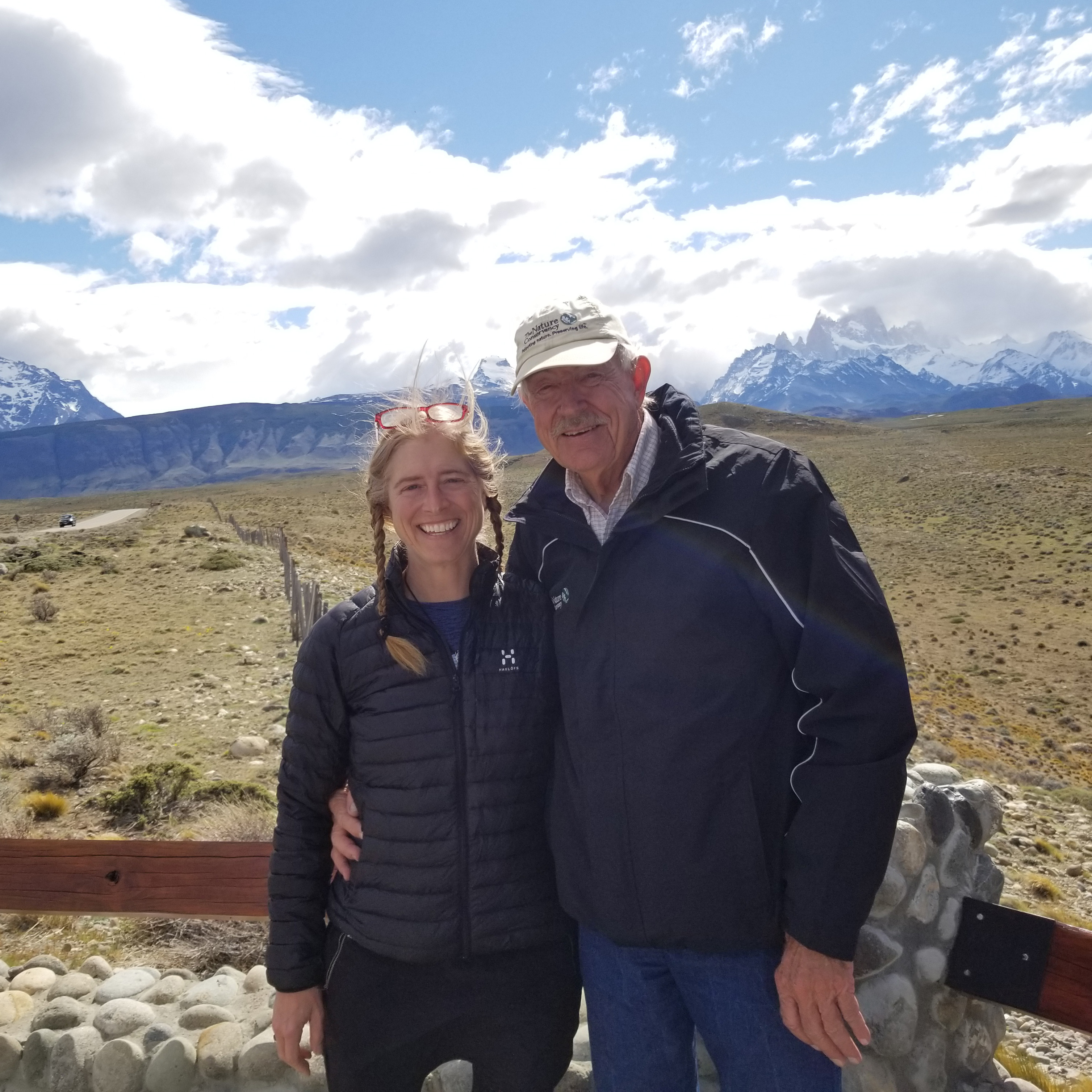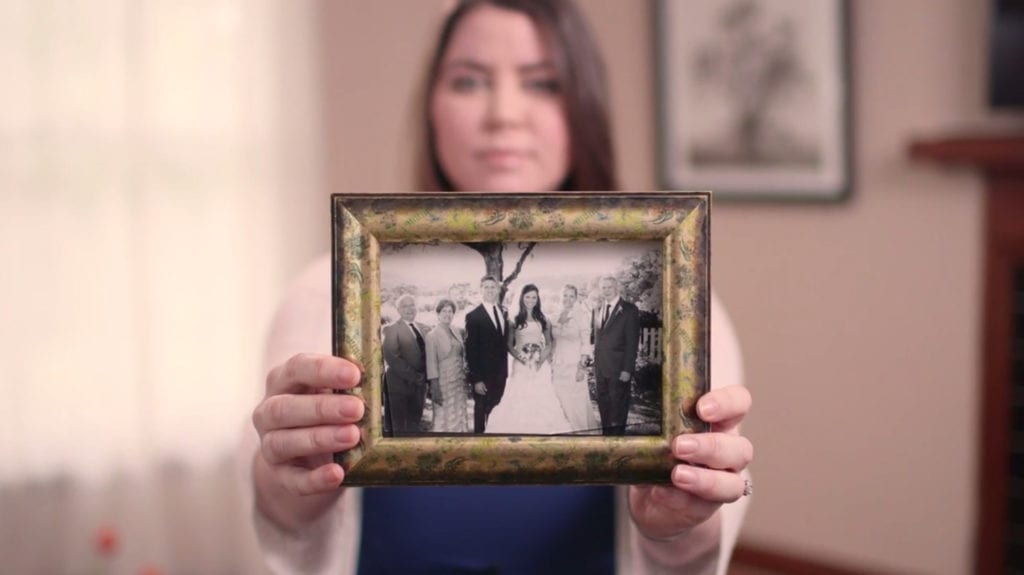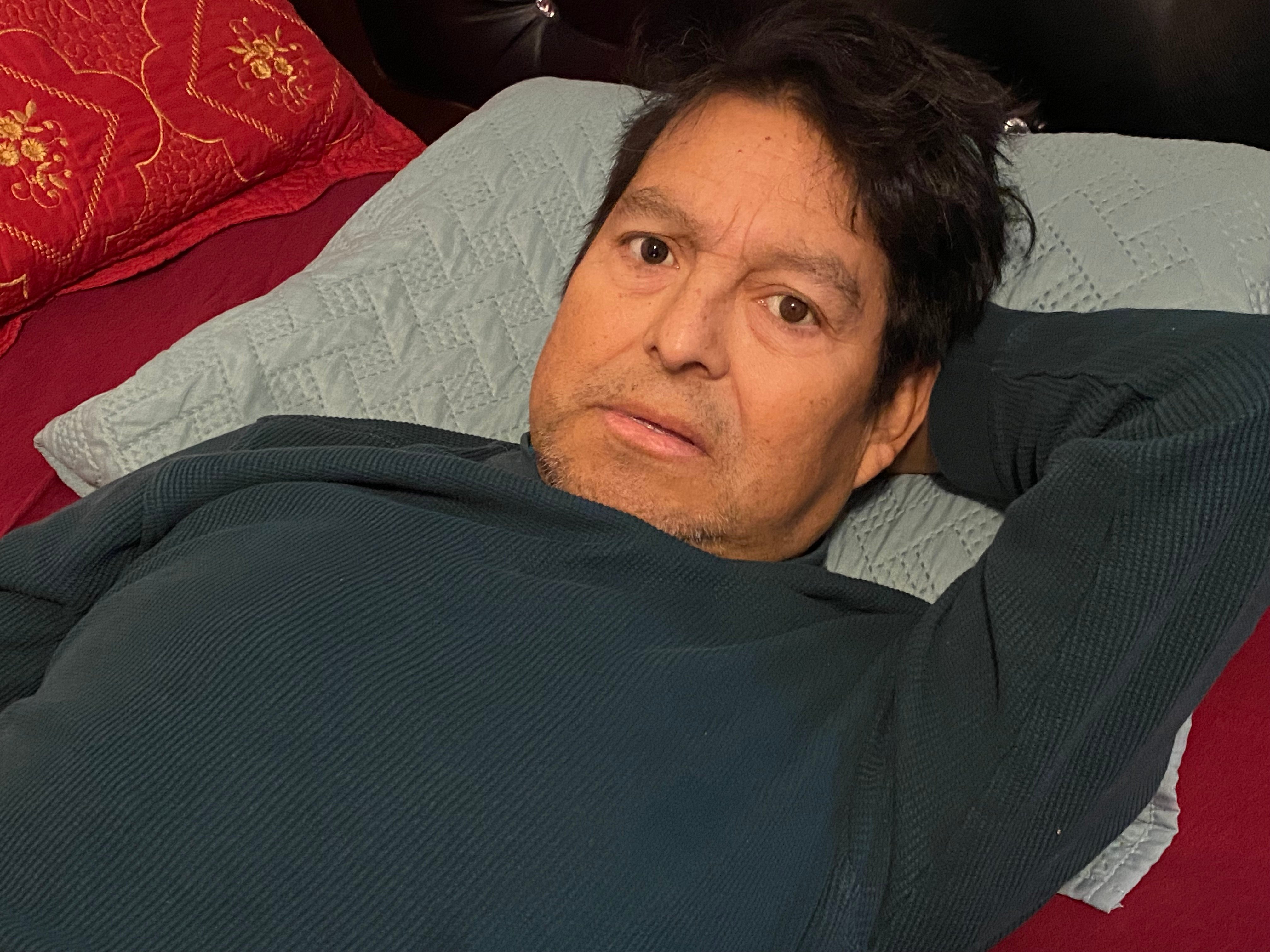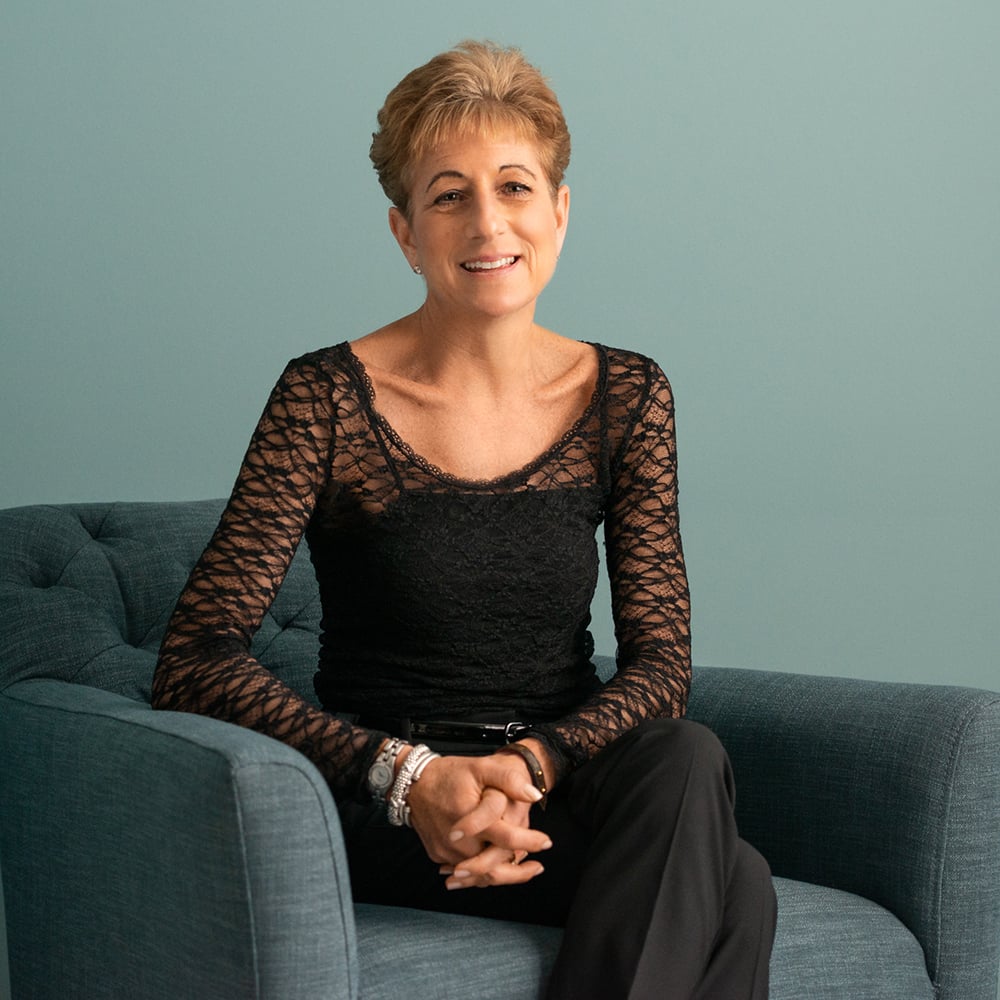Jo shared her story in June of 2023.
Dad used to say, “I have no god other than landscape.” He was a person of the planet — he scuba dived with Jean-Michel Cousteau, traveled the world from Argentina to New Zealand, Norway and Scotland, and flew his plane all over the country. In the years following my mother’s death, Dad had a Tuesday routine: He would drive an hour from his New Mexico home to the airplane hangar, do his plane maintenance, take it for a flight, and then go to KFC to get livers and gizzards (he never forgot to ask for his senior discount).
For two decades he lived in a remote location in the foothills of the Black Range in southwestern New Mexico, almost an hour to the nearest gas station. We thought he and my mom were out of their minds when they first moved there — it was just a bunch of rocks. But then we came to appreciate the beauty of this lonesome landscape. When Dad was dying, my cousin brought a drone with a camera and flew it around the same places my father loved to fly just a few years earlier. Watching drone videos on a tablet, my father once again had a bird’s-eye view, flying over the landscape between the mountains coming toward the house where he now lay in bed.
In January of 2023, Dad had hip replacement surgery on his left hip. For months, he had been dealing with peripheral neuropathy and hip pain that made it difficult to keep his balance and stay on his feet, not to mention traverse the two-plus miles roundtrip over rocky, uneven terrain to get the mail.
Two weeks after the procedure, Dad’s physical therapist sent him to the closest ER an hour and a half away for high blood pressure. That hospital sent Dad to another hospital because he was in kidney failure. He also developed atrial fibrillation, and after being in intensive care for two days, he was relocated to yet another hospital due to gastric bleeding. He finally went home in February.
For a long time my father had let us know that he did not want a drawn-out death. In fact, he had talked about his thoughts and values on end-of-life choices for so long and so much that it annoyed me when I was younger. His advance directive stated that he did not want any life-extending measures and he did not want to suffer. (Before my mother’s death in 2013, our family had gotten a lot of consultation from Compassion & Choices about how to ease her suffering. She had severe osteoporosis — not a terminal condition, but one that left her in extreme pain. She chose to voluntarily stop eating and drinking, and when she stopped taking the heart medication she’d been on for years for congestive heart failure, she died quickly.)
Despite this, when my father informed me in April that he planned to voluntarily stop eating and drinking, I initially balked. I figured his health wasn’t that bad and that maybe he hadn’t received the quality medical care he needed. My brother and I asked him if he would at least delay his decision to first seek a second opinion from the Mayo Clinic.
I began the process of trying to arrange that second opinion on April 21, and drove from my home in Colorado to Dad’s house on April 22.
When I got there and saw Dad with my own eyes, it was clear that he really was at the end of his life and was ready to go, both physically and mentally. It was like he had finally given himself permission to quit trying so hard to get better. I did the same. At 83, he had lived an exceptional life; he often said he had checked every item off his bucket list. He had spent the week prior making video calls to his grandchildren to let them know what he planned to do in his very matter-of-fact, pragmatic way. They all listened nonjudgmentally and let him know they loved and supported him.
The dinner Dad prepared for himself Saturday night was the last time he ate, and then he went to bed.
Over the next four days, Dad’s body changed quickly. He wasn’t ever hungry, and he was taking only the tiniest sips of water to take some of his medications. By the second day, he started smelling ketotic. Since he continued to take his diuretic, he became rapidly dehydrated and emaciated. He slept most of the time, with vivid dreams, and for the first couple of days managed to get out of bed once a day to sit in front of his computer to do video chats with family members.
On Monday morning, I called his primary care doctor to ask for a hospice referral but wasn’t able to get a telehealth visit scheduled with her until Wednesday, April 26. By the end of the day Wednesday, Dad was enrolled in hospice and had scheduled home visits with a nurse practitioner and social worker for the next morning. Hospice informed us that the options available to Dad were to either focus on keeping him comfortable or that, given how far he was into the process, he might qualify for medical aid in dying.
This was great news for my dad. Once a doctor from hospice had confirmed Dad was mentally capable to make this decision, she agreed to serve as the prescribing physician. Dad’s prescription was called into the pharmacy in Albuquerque — a three-hour drive from the house.
Dad was eager to get his medication, to the point that I called the pharmacy to pre-pay for it. My cousin made the drive on Thursday evening, stayed in Albuquerque overnight and picked up the medication first thing in the morning.
Once my cousin returned, there was no waiting around. I carefully mixed the medication per the instructions. My husband, my cousin and I helped Dad sit up on the edge of the bed. We gave him the drink with a straw, as well as a couple spoonfuls of melty sherbet to chase the bitter taste. After he had drained the medicine, he sent my cousin to mix the small amount of residue left in the bottle with water to be sure he got every last drop.
In less than two minutes, Dad lost consciousness. After four or five minutes, he underwent a tonic tremor. It was clear that his heart had stopped by that point. For about 45 minutes after that, he had agonal breaths; all three of us had enough understanding of the physiological process not to be disturbed by that. He was pronounced dead when hospice staff arrived, an hour and a half after he had drunk the potion.
It’s such a shame that we live in a death-denying society. If death is a failure, then what does that mean for all of us? Rather than denying death, we should focus on giving dying people options that allow them to have as meaningful a death as possible. My father's intentionality and the medical aid-in-dying law here in New Mexico allowed us all to say our goodbyes and for him to die peacefully, a man satisfied with his life.
When I think back on that last week with him, I will treasure the time I spent sitting up in bed next to him, holding his tablet while he talked with his beloved grandchildren. I have one photo of him talking with his dear granddaughter who currently lives in Scotland, and you can see both her face and his, smiling and animated. I love that photograph.






